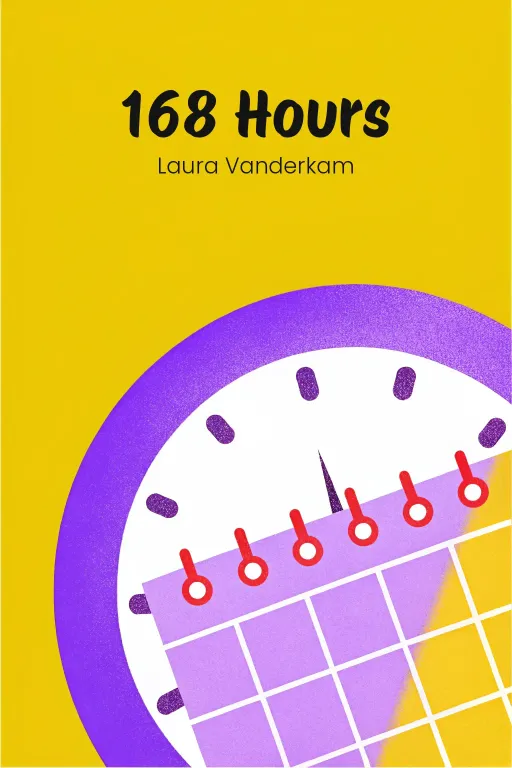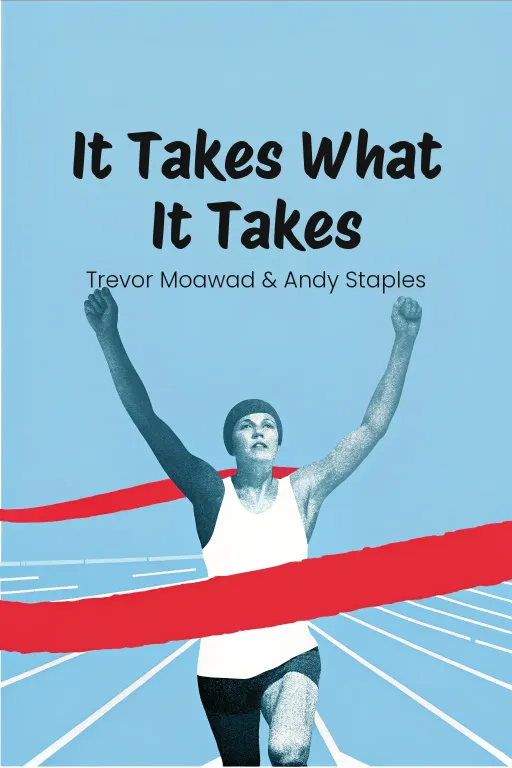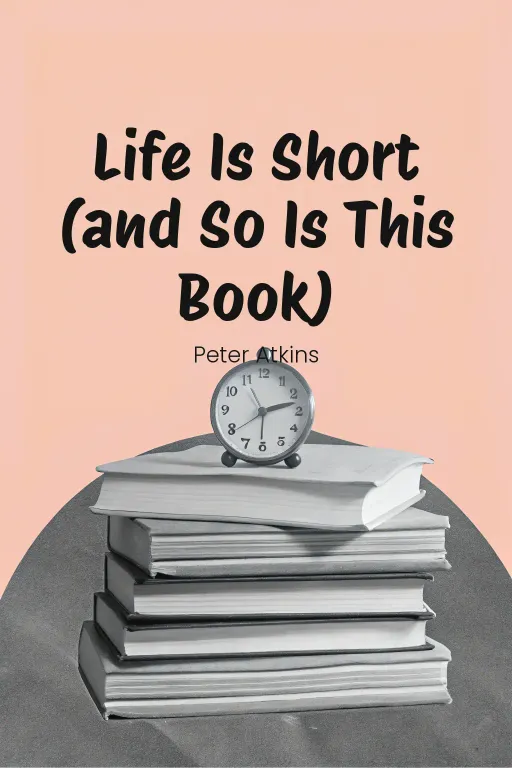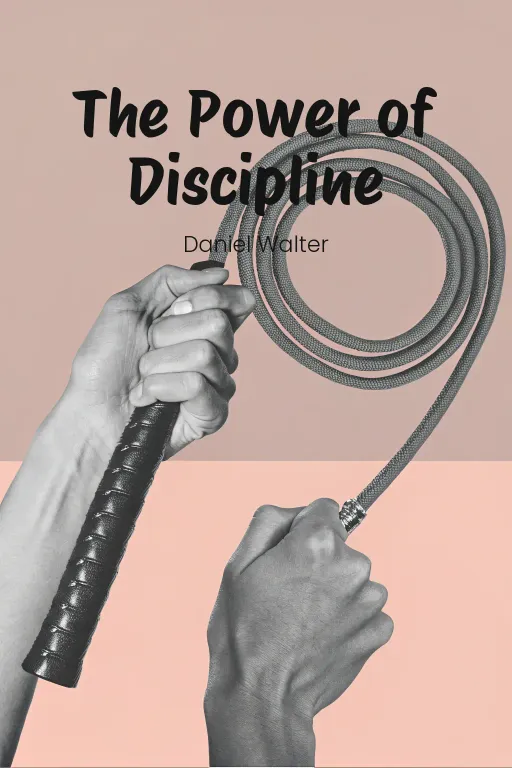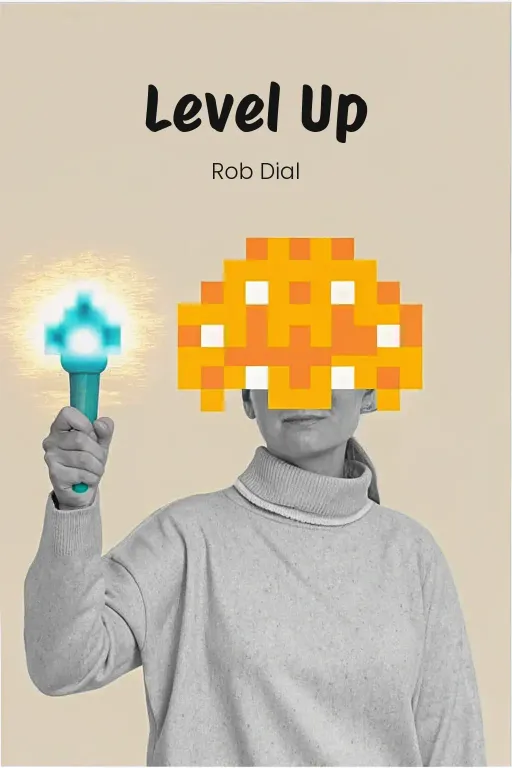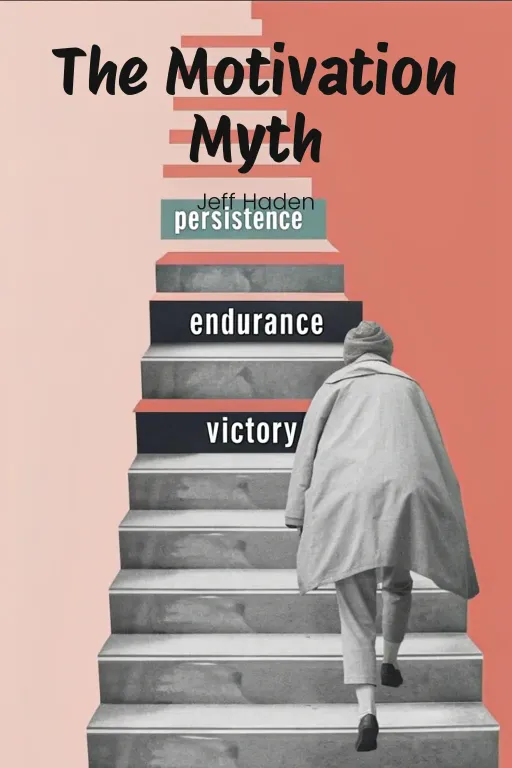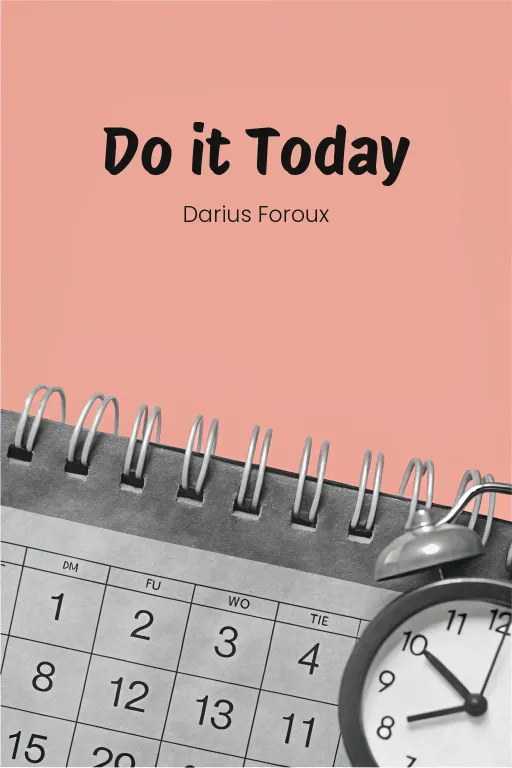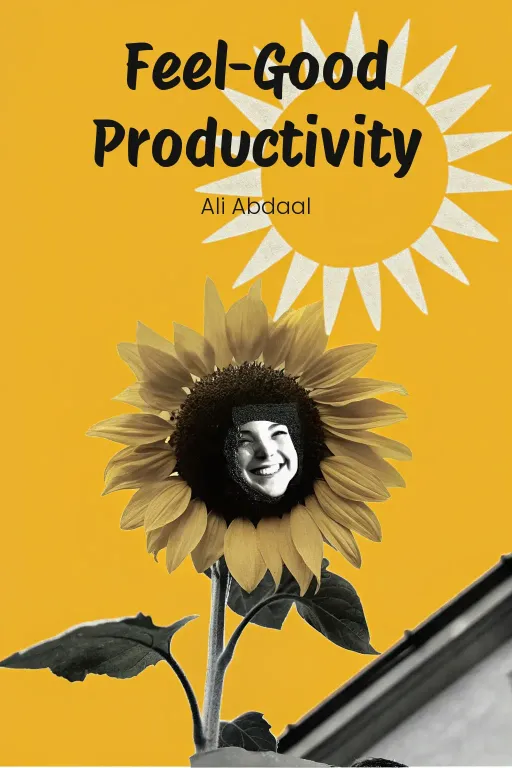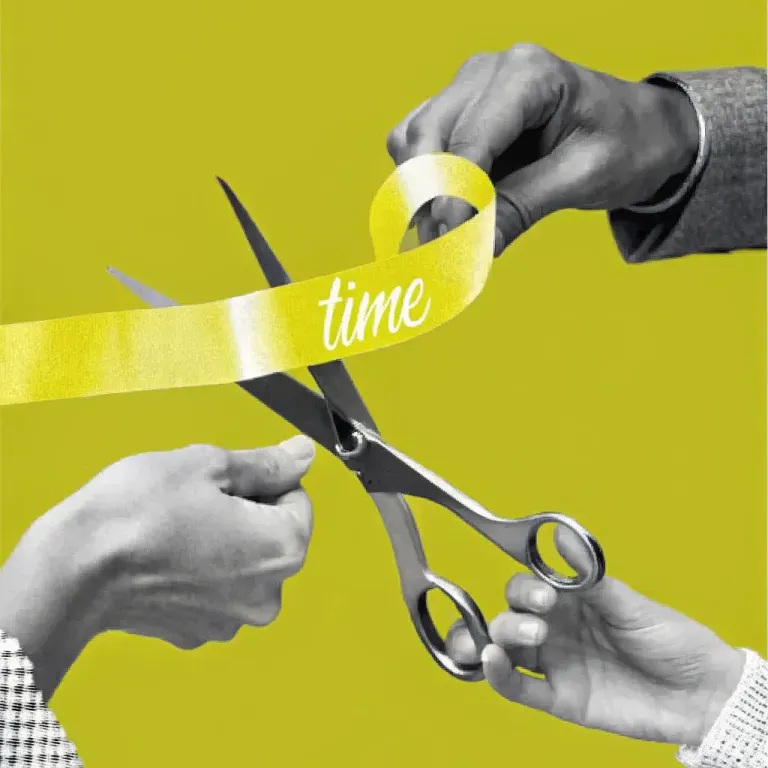
Live Intentionally: 5 Keys to a Richer Life
Podcast by Beta You with Alex and Michelle
Brief Thoughts on Making the Most of Your Life
Introduction
Part 1
Alex: So, let me ask you something: How well do you think you're “really” living your life these days? I mean, are you just getting by, or are you actually making each day count? Michelle: Ah, there it is. Alex's not-so-subtle way of saying, "Are you doom-scrolling, or are you out there changing the world?" But seriously, today's topic has the potential to shake up how we all define a life well-lived, right? Alex: Precisely, Michelle! We're diving deep into some of life's biggest questions. It’s all about time management, finding genuine fulfillment, and evolving into your best self. Basically, it’s a guide for navigating the chaos of modern life with purpose. The core idea? To use your days to craft a life that truly matters—not just to you, but to those around you. Michelle: That's a pretty tall order, Alex. So, what’s the game plan here? What are we actually going to unpack today? Alex: Okay, so today's episode is all about intentional living, and we're breaking it down into five key areas. First, we’re going to talk about mastering your time by focusing on what “really” matters. Think prioritizing strategically instead of just being busy all the time. Michelle: Okay, I'm listening... does this mean I can finally ditch those pointless meetings? Alex: Fingers crossed! Secondly, we're going to explore the power of curiosity for personal growth. Asking the right questions, after all, is what fuels both our individual progress and that of those around us. And after that, we’ll dive into resilience—learning how to navigate those inevitable setbacks without completely losing our momentum. Michelle: Ah, resilience. The skill we “all” desperately need, because life just loves throwing curveballs when you least expect them. Alex: Exactly. Then, we'll explore the ins and outs of building strong, lasting relationships—spoiler alert: it's all about behaving with integrity and authenticity. And finally, we'll wrap it up by talking about aligning your passions with your purpose, ensuring you're not just achieving goals, but also contributing to something larger than yourself. Michelle: Alright, so a roadmap for intentional living. Time management, personal growth, resilience, relationships, and purpose. It's basically the instruction manual for life that we all wish we'd gotten at birth. I’m in! Alex: You got, let's dive in!
Time Management and Prioritization
Part 2
Alex: Okay, so let's dive right in, shall we? Time management and prioritization are foundational. It's more than just ticking boxes; it’s about making sure those priorities actually reflect your values and where you want to be long-term. The book really emphasizes getting strategic, and it all begins with the art of saying "no." Michelle: Ah, "no." Always a fun word, isn’t it? Saying to a colleague, "No, I'm not joining your three-hour meeting that could’ve been an email." But honestly, Alex, is this more than just avoiding things we don't want to do? Alex: It's about being deliberate. There’s quite a story in the book about a former CEO, someone who seemed to handle everything effortlessly, and everyone wondered how he did it while others struggled. Turns out, he was a master at filtering—anything that didn't align with his core priorities got a "no." He avoided overwhelm because he focused solely on impact. Michelle: So, basically, it's like decluttering – Marie Kondo-ing your schedule. Keep what sparks joy and toss the rest. But doesn't saying "no" have consequences? What about potential workplace friction or missed opportunities? Alex: That's where the nuance comes in. It’s not a blanket "no" to everything; it’s about discerning what truly matters. The text suggests aligning tasks with your core goals and values. If a meeting pulls you away from a critical project or, you know, family time, you ask, "Is this really worth the cost?" If the answer’s no, then you set boundaries without feeling bad about it. Michelle: Right, so you're transitioning from a "yes" person to a "value" person. I get it. Okay, so what about technology? That feels like the biggest source of chaos, doesn’t it? You check one email, and suddenly it’s 2 PM, and you're watching cat videos. Does the book address that? Alex: Absolutely, and it’s where discipline meets strategy. The book highlights “block scheduling” as a way to handle distractions. You allocate chunks of time for specific tasks, like emails, meetings, or brainstorming. This eliminates the constant multitasking, which the book argues is a productivity killer. Michelle: Block scheduling sounds great in theory, but, well, life happens. Your focused writing block gets torpedoed by a lunch invite or, even better, a Slack emergency. Alex: That’s where the boundaries come in. Block scheduling only works if you enforce it. Silence notifications, set up out-of-office replies during focus hours, and declutter your digital tools. The key is to treat those blocks as sacred, like an unmissable meeting. Michelle: So, it’s not just time management; it’s self-management within that time. Let's talk about commuting, shall we, because I need to know if anyone's figured out how to reclaim those lost hours sitting in traffic. Alex: Oh, this is a big one. The book points out how commuting just eats away at our time and energy. I mean, for many of us, it’s unavoidable, but it's a source of stress. More and more professionals are reclaiming that time by working remotely or moving closer to work. Even small adjustments, like a fifteen-minute shorter commute, can noticeably improve your day. Michelle: Right, fewer hours in traffic means more time for what actually matters – family dinner, starting that hobby you’ve been putting off for 10 years... Alex: Exactly. Plus, the book challenges us to reframe commuting. If you can’t move, can those hours become productive? Maybe listening to audiobooks or just reflecting on your goals. It's about making that time work for you instead of just... surviving it. Michelle: Makes sense. Here’s my favorite part, and it feels a little counterintuitive: the idea that busyness isn’t productivity. You know, people wear "I'm so busy" like it’s an Olympic medal. Alex: Yes! The book really gets to the heart of this. It’s not about how much you’re doing; it’s about how meaningful those tasks are. The CEO story from earlier comes into play here. Achieving more isn’t about taking on everything, it’s about deliberately choosing the right things. Michelle: Right, so busy doesn't mean effective, it just means… busy. It’s like running on a treadmill and thinking you’re traveling to a new city. Alex: Exactly. And technology makes this illusion even worse. Notifications, endless meetings and tasks – they create this false sense of progress. The book urges us to slow down, focus, and ask, "Am I actually moving in ways that reflect who I want to be?" Michelle: That's both simple and a little unsettling. Okay, what about the creative side of things? If you schedule every hour and eliminate distractions, are you squeezing out those spontaneous moments of inspiration? Alex: Great question, and the book actually addresses this well. It advocates creating “downtime” specifically for that. Think of creativity like a river – you need stillness for it to flow. The author talks about using photography as a way to reflect, and that really resonated with me. Michelle: So stepping away from the grind isn't procrastination, it’s prepping your mind to think better? Alex: Exactly! Whether it’s photography, going for a walk, or just sitting and thinking – those moments of pause are deceptively productive. They expand your problem-solving abilities because you're letting your subconscious take the lead. Michelle: I like that. Take a break, let your brain connect the dots on its own. And honestly, with the other suggestions – block scheduling, cutting distractions, prioritizing – creating downtime actually feels possible. Alex: That’s the whole point. These strategies aren’t just about efficiency. They’re about living intentionally, making space for what truly matters, and aligning your actions with your values. Time is our most limited resource, and the book reminds us that it’s how we use it that defines our lives. Michelle: Okay then, let's reclaim our calendars – and maybe our sanity. What's next?
Lifelong Learning and Curiosity
Part 3
Alex: When you manage your time well, you can really focus on growing as a person through constant learning. The book does a great job of building on time management by adding this key element: always learning and staying curious. It’s not just about organizing your time, but also using that time for things that help you grow. Michelle: So, basically, once we stop running around putting out fires all the time, we can actually spend time on what really matters in the long run. Lifelong learning—sounds like a big commitment, Alex. So, what’s the plan? Are we all going back to school for a new degree? Alex: Not necessarily, Michelle. Lifelong learning here means having the right mindset. It’s about always expanding your knowledge, improving your skills, and being curious so you can keep up with a world that's always changing. The book suggests a few ways to do this, like reading a variety of things, finding mentors, and learning from your mistakes. Michelle: "Reading widely" sounds nice and intellectual. Maybe I should swap out some TV time for books. But what exactly does the author mean? Academic stuff? Fun novels? Alex: Think of it more broadly. It’s not just about sticking to one type of content, but exploring different subjects to get new ideas. The author said that when reading about investing, he realized that psychology and statistics were essential to understanding people. Reading across different fields helped him connect ideas and see things he wouldn’t have noticed otherwise. Michelle: I like that. It's like being your own intellectual bartender. A little science, a splash of philosophy, mix it up, and bam—new insights. Alex: Exactly! And there’s another level here: learning from other people’s experiences, especially their failures. The author mentions that biographies, historical accounts, or insightful articles let you learn lessons without having to make the same mistakes. It's a way to avoid bad decisions by seeing things from a wider perspective. Michelle: Makes me think of how everyone suddenly became a "war expert" after watching those documentaries. But it’s true, learning about people’s biggest fails is often more helpful than hearing about their wins. Isn’t there a saying? "Success leaves clues, but failure teaches lessons." Alex: Exactly. And it links to something else big – mentorship. The author sees mentors as living guides who can help you navigate challenges. They share wisdom you won’t find in books because they’ve lived it. Michelle: True, but good mentors don’t just appear out of nowhere. Does the book suggest how to find them? Do we just walk around with signs that say "Seeking wise advice"? Alex: <Laughs> not exactly, Michelle, though I’d love to see that! The book suggests approaching potential mentors with genuine interest and respect. And here’s a key—pay attention! There’s a great story about a friend who reminded the author, "We have two eyes, two ears, and one mouth for a reason." It’s about really watching and listening to people who’ve taken different paths, learning from what they’ve done. Michelle: Observe more, talk less, got it. I guess it also takes being humble—being willing to say, "I don’t know everything," and asking for help. Alex: Absolutely! Being humble comes up a lot in this part. The book even shares one of my favorite quotes: "It ain’t what we don’t know that gives us trouble; it’s what we know that just ain’t so." It’s a reminder not to be too confident and to stay flexible, challenge assumptions, and always try to understand things better. Michelle: That hits home. How often do people stubbornly stick to being wrong because they don’t want to admit they messed up? So, being humble keeps you open to learning, right? Alex: Exactly. And if you combine that humility with curiosity, you get systems thinking—another important skill for lifelong learners. It’s about seeing the bigger picture, understanding how different parts work together. Think of it as going from seeing things narrowly to seeing the whole landscape. Michelle: Sounds good for planning, but how does it work in real life? Give me an example. Alex: Sure. The book shares how the author uses systems thinking when looking at investments—not just doing the math but also considering how people think, their biases, and historical trends. It’s about dealing with complex things by looking at them as a whole, instead of just focusing on one thing. Michelle: Okay, so it’s like listening to a whole orchestra instead of just the flute. But doesn’t that make decisions more complicated? Is it possible to overthink the "system" instead of keeping it simple? Alex: That’s a good point, and the book mentions it. While systems thinking is useful, it warns against making things too simple or too complex. The key is to understand the context. The Mark Twain quote sums it up nicely—"History doesn’t repeat itself, but it does rhyme." Look for patterns, but don’t force them. Michelle: Alright, balance is key. Now, let’s talk about failure—I’m guessing any growth plan needs to address it. What’s the book’s view? Alex: The book says failure is not only okay but necessary. It’s where you learn the most. The author points out the difference between failure caused by bad thinking versus bad luck, and stresses the importance of knowing which is which. That helps you make much better decisions. Michelle: Failure isn’t a dead end, just a speed bump? You slow down for a sec, but you keep going? Alex: Exactly! The idea is to use failure as a way to improve. Learn, adapt, and keep moving forward. But—and this is crucial—combine that persistence with patience. The author compares it to training for a marathon: start small, build endurance over time. Big achievements almost always come from steady, focused effort rather than short bursts of energy. Michelle: Okay, Alex, I get it—baby steps, patience, persistence. Small steps "really" do add up. But it feels like you need a lot of trust here, right? Trust in the process? Alex: Absolutely. Lifelong learning isn’t about getting instant results. It’s about consistently investing in yourself—reading, listening, failing, reflecting—so that over time, you’re better prepared to handle whatever life throws at you. It’s a long-term thing, Michelle. Michelle: A long-term thing, but worth doing. So, I guess the message is... stay curious, stay humble, and treat learning like a trust fund that pays out in wisdom.
Resilience and Embracing Change
Part 4
Alex: So, now that we're armed with some knowledge, the real trick is putting it to work in our lives, right? That brings us to resilience and embracing change, which honestly, is a big theme throughout the book. It's all about how you combine emotional strategies with practical stuff to really thrive when things get tough, or when life throws you a curveball. Michelle: Resilience, huh? It sounds great, but usually it feels like you have to suffer first! So, how does the book make this less, well, intimidating? Because “embracing change” usually feels more like, you know, “bracing for impact.” Alex: I totally get that, Michelle. Resilience isn’t about just gritting your teeth and toughing it out – it's about actually learning and growing through the tough times. The book emphasizes that setbacks can actually be opportunities to learn new things, develop new skills, and see things in a new light. It’s like, bending without breaking, and figuring out how to come back even stronger. Michelle: Alright, so what's step one to getting this unbreakable spirit? Some kind of mental boot camp? Alex: Step one is acceptance, it's learning to tell the difference between what you can control and what you can’t. The book uses this really powerful example, the story of a cancer patient. She decided not to focus on what her illness had taken from her, but on what she could still experience. She would have these deep conversations, stay curious about technology, and really find joy in the little things, like the flowers blooming outside her window. Michelle: Hold on, are you saying she was discussing technology while battling cancer? That's… unexpected, to say the least. Alex: Exactly! It was about intentional living, not about pretending the cancer wasn’t there. By really focusing on the aspects of life that were still available to her, she discovered a sense of peace and even joy. This story is anchored in this Dale Carnegie quote that's also in the book: "If you can't sleep, then get up and do something instead of lying there worrying." Michelle: Classic Carnegie. So, energy spent worrying is just wasted energy, right? More “do” and less “dread”? That’s practical, sure, but it’s easier said than done when your brain is just stuck on all the worst-case scenarios. Alex: Definitely, which is where reframing comes in. The book suggests channeling your worry into actionable steps. If you can actually fix something, then do it. And if you can’t, you have to let it go. It’s all about regaining a sense of agency. Even a tiny step forward can really shift that feeling of total helplessness. Michelle: That’s solid advice. So, instead of “What if this fails?” we should ask, “What now?” – which naturally leads to action. But let’s talk about my go-to coping mechanism: humor. I mean, worrying less is great, but sometimes you just need a good laugh to lighten the load. Does the book talk about that at all? Alex: Absolutely! Humor is actually a recurring theme throughout the book as a tool for resilience. One striking example comes from a Microsoft meeting where the stakes were incredibly high. The tension in the room was unbearable until a senior colleague broke the ice with a joke – he just said, "Well, I guess we’re screwed!" Everyone started laughing, the tension just disappeared, and suddenly the team was able to tackle the problem with a new sense of clarity. Michelle: I honestly love that. It just shows how laughter doesn’t diminish the seriousness of something, but actually makes it easier to manage. It's like emotional CPR. Alex: Exactly! And the book shares another example, where the author mistook a stranger for a state governor. Instead of getting all embarrassed and worked up about it, he played into the humor of it, made it into a lighthearted moment, and even connected with the stranger over it. Michelle: So, humor can turn mistakes into moments that connect us, rather than isolate us. But that leads to a bigger question: if resilience is about navigating change and humor helps lighten the load, what happens when the change is just massive? Like, "rewrite your entire life" massive? Alex: That’s where the book gets really interesting. It talks about viewing change not as something disruptive, but as an opportunity. Look at the newspaper industry in the 1990s – it’s kind of a cautionary tale. They resisted the digital wave, they clung to print, and they watched their dominance just plummet. But on the flip side, those who embraced the change – like the Googles and Amazons of the world – they flourished because they seized the opportunity to innovate. Michelle: Right, so instead of freaking out that your industry – or your life – is changing under you, you pivot. Start asking, “What can I build that fits this new world?” Alex: Exactly. Change really forces creativity. And the book encourages us to move in small steps when change feels overwhelming. It's like tackling a marathon – you don’t run 26 miles on day one. You start with one mile, then five, and then gradually build your endurance. It’s the same idea—break down big transitions into manageable steps. Michelle: Okay, I get the idea of small steps, but what about our mindset? Does the book push for a “power through” attitude, or does it say something deeper about how change reshapes us? Alex: It’s definitely deeper, it’s about really cultivating a growth-oriented mindset. The book emphasizes that adapting to change successfully really depends on being open to new perspectives and new ways of doing things. Challenges become the ultimate workshops for personal growth. This is where resilience and creativity come together, it’s about seeing change not as a road block, but as fertile ground for transformation. Michelle: Sounds like we’re being asked to embrace some serious character upgrades. But what about those people who resist change out of fear, or just because they're comfortable? Alex: The book lays it out pretty clearly: resisting change isn’t just about staying comfortable—it’s risking becoming irrelevant. That’s not to say you should accept every single change without thinking, but you do need to stay flexible and adaptable. And I love this point: the key to overcoming that fear, is focusing less on what you might lose, and more on what you have to gain. Michelle: So, the equation isn’t change equals loss, but change equals growth – if you let it. Alright, I’ll admit, I’m starting to buy into this resilience thing. Keep going, Alex. What else sets us up for thriving through chaos? Alex: Just one final thought – resilience isn’t built overnight. It's made up of those intentional, incremental strategies; the small decisions, the mental shifts, and the little wins that you have facing challenges. Over time, these things come together to build something more powerful – a solid capacity to weather storms, and even to embrace them as important parts of our journey.
Character and Relationships
Part 5
Alex: We’ve talked about bouncing back, and now let's zoom out. Character and relationships, right? They're really the bedrock of a well-lived life. It's like, how does who you are, and who you surround yourself with, really shape not just your happiness, but what you contribute? The book shifts from just personal resilience to how we connect with the world. Michelle: Okay, so we're going from "me" to "we." I get it. But honestly, saying character and relationships are important feels obvious. I mean, nobody wants to be untrustworthy. What fresh perspective does this book actually bring to the table? Because I'm always skeptical. Alex: Exactly, Michelle, that's a valid question. It doesn’t just say "be a good person." It breaks down how – integrity, genuineness. It's about purposefully cultivating those traits to create meaningful bonds. There's this great line from Lincoln: “Character is like a tree, and reputation like its shadow. The shadow is what we think of it; the tree is the real thing.” It's a reminder: the tree is who you are, and that dictates the relationships! Michelle: Lincoln knew a thing or two. So, stop obsessing over appearances – the shadow – and focus on the core of who you are. Got it. But what's the real-world benefit? Why does integrity really matter in relationships, besides sounding good on a poster? I need to be convinced. Alex: The payoff is trust, plain and simple. When you consistently act in line with your values, you build a reputation for being reliable and morally clear. People just instinctively feel safer and more willing to invest in a relationship with you, whether it's personal or professional. The author shares how sticking to his ethics in a tough work situation, even with initial consequences, paid off in the long run with stronger partnerships. Michelle: Interesting, so it's like compound interest, but for relationships. The more you stick to your guns, the more trust builds up, and eventually, that pays out in deeper connections. Okay, I see that. But—of course, there's a "but"—what about people who see integrity as a weakness? What if doing the "right thing" costs you an opportunity? How does the book deal with that? Because life isn't always a morality play. Alex: Well, it confronts that head-on. Doing what's right isn’t always easy, especially now; there always seems to be someone who profits from your losses, short term. The book shares a powerful thought: “People may forget what you said or did, but they’ll never forget how you made them feel.” Even if you lose a deal, staying true sends a message of emotional safety, which strengthens relationships in ways that quick wins can't. Michelle: So you might lose the battle, but win the war. Okay, I'm warming up to this. But let's switch gears to the relational side of things. What does the book say about who we choose to surround ourselves with? Because you can be the most stand-up person in the world, but if you're stuck with a bad crowd, aren't you fighting a losing battle? Alex: Absolutely! The book really emphasizes how relationships are mirrors and support beams – reflecting who we are and holding us up. Intentionality is key: choose people who share your values and inspire growth. The author talks about how important mentors have been in his life, guiding him during critical times. Michelle: Mentorship—like having a Yoda in your corner, minus the swamp. But sure, I get how mentors pull us up. What about our peers, though? The people we spend the most time with – are they as important as mentors? Alex: Even more so. The book talks about what it calls "formative influence," how our habits, dreams – even our character – are shaped by our close connections. You see this a lot with young people, how friends shape choices. But it's just as true for adults. Whether it's at work or in your personal life, your circle can really make or break you. Michelle: It's that old saying, right? "You're the average of the five people you spend the most time with." Makes sense scientifically – being around motivated, grounded people raises your own bar. But here's the kicker, Alex. What if those ‘five people’ are, shall we say, less than ideal? Toxic boss? Difficult family situation? How do you build good relationships when you're surrounded by bad ones? Alex: That's definitely a tricky spot, and the book handles it carefully. It suggests seeking depth over breadth – focus on quality relationships. It shares a story of Rose Blumkin, who understood the distinction between real friendship and the lack of it. She prioritized genuine ones for the long term, and they served as her anchor during times of adversity. You don’t need to cut people off cold turkey, instead, aim to cultivate those key relationships based on respect where you have strong overlaps. Michelle: So quality over quantity – like a carefully curated playlist versus endless scrolling. I get that. But let's be real, Alex, Rose sounds like an exception. A lot of people find it hard to make those deep connections, especially as adults. Then what? Alex: The book understands that struggle but gives really practical advice – start by being the kind of person you'd want to befriend. Be empathetic, listen actively, and show up consistently. Friendships aren’t built overnight; it comes from shared moments and feeling comfortable asking for and giving favors. Michelle: I like that. It's like putting good energy out there first, without expecting anything back. That makes me think about one final thing: the small stuff. The everyday, "no one's watching" choices. How do those actions shape character and relationships? Alex: It's all about integrity in action. Character isn't built on grand gestures, the book argues; it's built in the small things. Keeping your word, showing up on time, remembering a detail about someone - that builds trust over time. And trust fuels relationships. It uses this great image: “Character is like a forest, grown from the seeds of small, intentional choices.” Michelle: And without consistency, that forest never grows. Got it. So, to sum it up: integrity is the inner foundation, and meaningful relationships are the external support system. Together, they're the roots and branches of a strong tree, each strengthening the other. Alex: Exactly. By looking both inward and outward – at our values and our connections – we create a life that resonates and that’s resilient. Giving those 30,000 days real meaning.
Purpose and Collective Responsibility
Part 6
Alex: So, with strong relationships as a foundation, we can now explore making broader societal contributions. Which brings us to today’s topic: Purpose and Collective Responsibility. This book does a great job of elevating the discussion from just personal fulfillment to how we can collectively make things better. It really shows us how when we align our own passions with actions that mean something, we can create a ripple effect that has a lasting impact on society. Michelle: Okay, so it’s taking "find your purpose" to the next level by asking if that purpose can actually do something for the world. Ambitious! Where does the book even start with that? Alex: It starts with aligning passion and purpose. The main idea is simple but transformative: living intentionally means combining what you love with what creates value for others. The author actually uses their own career as an example. They went from jobs that didn't resonate with them to a career in investing. They were able to use their curiosity and problem-solving skills, while also making a real contribution that meaningfully impacted their clients' lives. Michelle: So the goal is to find that sweet spot where your talents and the world’s needs overlap. But… doesn't that sound a little idealistic? I mean, not everyone has the luxury to just switch careers or chase after every dream. Alex: Absolutely, that’s a fair point. The book does acknowledge that not every passion can become a full-time job, but it encourages people to think more creatively. So, for example, if quitting your job isn’t an option, you could put your passion into side projects, volunteering, or even just hobbies that give back in some way. The idea is to take action where you are, doing what you can, with what you have right now. Michelle: Okay, so it’s not about completely changing your life. It’s about, how do you weave purpose into the everyday? But what happens when, you know, what you're passionate about clashes with societal expectations? Everyone likes saying, “Follow your dreams!” but the reality is, you have mortgages, families, and jobs that might not exactly ignite joy every single day. Alex: This is where the book brings in the idea of delayed gratification. It warns against putting our true passions away indefinitely for the sake of societal approval. There's a powerful quote from Oliver Wendell Holmes, “Many people die with their music still in them.” Essentially, ignoring what really excites us—out of fear, conformity, or convenience—can lead to regrets and missed chances. Michelle: I like that. So finding a balance. You don't need to quit your job tomorrow to "chase your dreams," but also, don't completely ignore those dreams either. It’s more of a suggestion: don't let that music fade before anyone has a chance to hear it. Okay, but what happens when those passions steer you towards something bigger, like wanting to tackle inequality or poverty? Alex: That’s the next layer, actually. It challenges us to look outward and address broader societal issues alongside our personal pursuits. It actually highlights some pretty sobering statistics: over 80% of the world lives on less than $10 a day, and a huge number of people don't have access to clean water or electricity. It argues that's a moral call to action, even in small ways. Michelle: Those are staggering numbers. But here's the thing. Faced with problems that big, people often freeze up. They think, "What possibly meaningful thing can I do when there's so much global poverty?" Alex: Right, and that’s why it focuses on practicality. It advocates for what I’d call "micro-activism"—taking small, consistent steps related to both what you're able to do and the causes you care about. Supporting ethical brands, donating to effective charities, or even mentoring someone locally can contribute to change within the system. The key is intentionality. It’s really about changing your daily habits in ways that, together, create a broader impact. Michelle: Okay, but let me push back a bit here. If I buy fair-trade coffee or donate to a clean water project, sure, I’m doing something, but is it really making a dent in systemic inequality? How does the author reconcile those little actions with such massive issues? Alex: It comes down to the concept of the ripple effect. The book emphasizes that even though individual actions might seem small, they inspire others and build momentum. Think of it kind of like planting seeds. Every act of kindness, every ethical choice, actually adds to a bigger movement. It even connects this to gratitude: recognizing our own advantages—like having access to clean water or education—pushes us to pay it forward instead of just taking them for granted. Michelle: Gratitude as motivation. Interesting. So, instead of being weighed down by guilt or feeling hopeless about these big problems, it’s about switching gears to focus on what you do have and using that to drive change. Alex: Exactly! There’s this one example in the book that really stuck with me. It talks about redirecting excess resources, like, donating a small percentage of your income to charities that are working on sustainable solutions. Things like supporting school sponsorship programs or initiatives for clean energy can really amplify the impact. And for the person giving, it creates a really strong sense of connection and purpose. Michelle: Right, redirecting instead of just accumulating. So, shifting gears again, how do communities play into this whole purpose and responsibility thing? Does the book see them as key players? Alex: Absolutely. Community engagement is seen as an important avenue for finding purpose. It argues that when people get involved in causes bigger than themselves—whether it’s through local volunteering or global collaborations—they find a deeper sense of belonging. There was actually a moving story about volunteers working to address homelessness where they live. When they came together, they not only made a real difference, but they also built empathy and resilience in their own lives. Michelle: So, when you take action and participate, it’s not just helping the community, it’s actually changing you too. This idea of “service” becomes a two-way street. But we can't ignore leadership here. All of this needs coordination. So how does the book talk about leadership in driving this collective responsibility? Alex: That’s a great question, Michelle. Leadership is key, but the book emphasizes ethical leadership. It’s about making decisions based on values, not just chasing short-term gains. Leaders who are open, caring, and honest create trust and cooperation within their teams, which then creates a multiplier effect. When a leader acts with integrity, that empowers others to do the same, which spreads responsible behavior throughout organizations and communities. Michelle: So leading by example, but it's not just the "work harder" kind of example. It’s about being fair, transparent, and making sure your actions line up with the greater good. Honestly, it sounds like leading with a conscience, which is kind of refreshing, given how often leaders are rewarded for just hitting targets. Alex: Exactly. It’s a reminder that leadership isn’t just about results—it’s about the kind of legacy you leave. Ethical leaders create environments where people are encouraged to think collectively, work together, and put societal benefit ahead of individual gain. Think of it like planting not just seeds, but entire forests of impact. Michelle: A forest, not just trees. I like that. So, putting all of this together—aligning your passions, taking those deliberate steps to tackle global issues, and leading ethically—this chapter really pushes us to broaden our horizons. It's not just about living with purpose, but making sure that purpose creates a lasting impact that improves the lives of more people than just ourselves. Alex: That's it exactly. The big message is clear: when we connect our own aspirations with our collective responsibility, we create a life defined not just by personal success but by our impact on society. It’s a reminder that even the smallest intentional actions, when combined, really do have the power to transform.
Conclusion
Part 7
Alex: So, there you have it—a potential guide to living a more intentional and full life within the time we have. I think, we've covered how mastering your time, continuous learning, building resilience, nurturing real relationships, and “really” aligning your passions with a purpose can create a positive ripple effect. Michelle: Right. It's about filtering out the distractions, zooming in on what's actually important, and understanding that even those little, thoughtful choices can actually build a meaningful legacy. And, you know, a little bit of humor and humility sprinkled in doesn't hurt either. Alex: Exactly! If you remember one thing from our conversation today, let it be this: be intentional. Be intentional with how you spend your time, what you choose to learn, the connections you make, and how you contribute to the world. Life isn't just a blur of days, it's a chance to cultivate purpose and leave a mark, however big or small. Michelle: Nicely put, Alex. So maybe swap an hour of mindless scrolling for, say, thirty minutes of strategic planning—or even just quiet reflection. Who knows? That could be the seed of something far bigger than you can imagine. Alex: Absolutely! Time is limited, there's no arguing that, but what we “do” with it? The possibilities are endless. So let's make it count.


